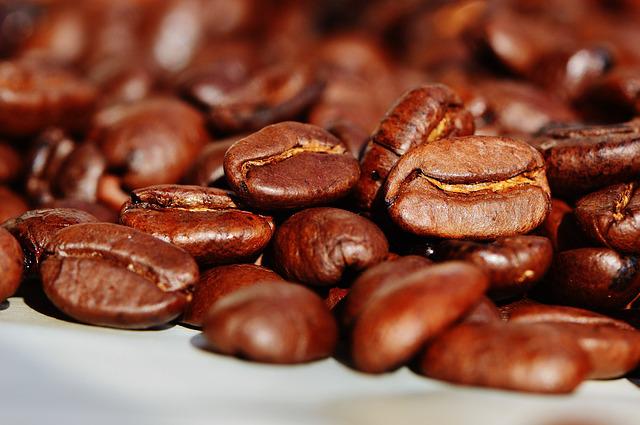The main difference between decaf coffee and regular coffee is the amount of caffeine. Decaf coffee has very little to no caffeine, while regular coffee has a significant amount of caffeine. Caffeine is a stimulant that can have various effects on the body, including increased heart rate and blood pressure.
What is decaf coffee?

Decaf coffee is coffee that has had most of the caffeine removed. Decaffeination is typically done using one of two methods: the Swiss water process or the chemical solvent method.
The Swiss water process uses only water to remove the caffeine, while the chemical solvent method uses a solvent (usually methylene chloride or ethyl acetate) to remove the caffeine.
Decaf coffee typically contains 2-12mg of caffeine per cup, while regular coffee can contain anywhere from 30-300mg of caffeine per cup.
What is regular coffee?
Regular coffee is coffee that has not been decaffeinated. It typically contains around 95% caffeine, while decaf coffee only contains around 2% caffeine. The difference in caffeine content can make regular coffee more effective in terms of providing a burst of energy, but it can also make it more likely to cause side effects like jitteriness and insomnia.
Decaffeination Processes
(Image by Alexa from Pixabay )

Decaffeination is the removal of caffeine from coffee beans, resulting in a decreased content of caffeine in the finished coffee. There are several methods that can be used to remove caffeine from coffee beans, including water processing, solvent-based methods, and supercritical carbon dioxide extraction. Water processed decaf coffee typically has the most retained flavor out of the three methods.
The most common method of decaffeination is called the Swiss Water Process. This method uses green coffee extract (GCE) to strip away the caffeine molecules from the coffee beans. The GCE is able to selectively remove the caffeine molecules while leaving behind other important flavor compounds. The treated coffee beans are then dried and ready for roasting.
Another popular method of decaffeination is called the Direct Solvent Method. This method uses a solvent (usually methylene chloride or ethyl acetate) to directly dissolve and remove the caffeine molecules from the coffee beans. The treated coffee beans are then dried and ready for roasting.
Supercritical carbon dioxide extraction is a newer method of decaffeination that is becoming more popular due to its environmentally friendly nature. In this process, pressurized carbon dioxide is used to extract the caffeine from the coffee beans. The treated coffee beans are then dried and ready for roasting.
The Health Benefits of Decaf Coffee
Decaf coffee has many health benefits that regular coffee does not. For one, decaf coffee is lower in calories and fat than regular coffee. Additionally, decaf coffee is a good source of antioxidants and can help to improve brain function. Finally, decaf coffee has been shown to reduce the risk of certain diseases, such as cancer and Parkinson’s disease.
The Taste of Decaf Coffee
Decaf coffee is coffee that has had the caffeine removed. The taste of decaf coffee can vary depending on how the caffeine was removed and what type of bean was used. Some people say that decaf coffee tastes different than regular coffee, while others say they can’t taste the difference.
How Much Caffeine is in Decaf Coffee?
When it comes to caffeine, decaf coffee is not completely caffeine-free. However, the amount of caffeine in decaf coffee is significantly lower than in regular coffee. Depending on the brewing method, a cup of decaf coffee can contain anywhere from 2 to 12 mg of caffeine. In comparison, a cup of regular coffee contains about 95 to 200 mg of caffeine.
Does decaf coffee keep you awake?
When it comes to decaf coffee, there is a lot of misinformation out there. Many people believe that decaf coffee has no caffeine in it, but this is not true. Decaf coffee does contain small amounts of caffeine, but the amount is so low that it is not likely to keep you awake. In fact, decaf coffee has been shown to be just as effective as regular coffee at promoting wakefulness and alertness. So if you’re looking for a way to stay awake, regular coffee is probably your best bet.
The advantages and disadvantages of regular coffee
Advantages of Regular Coffee:
- Increased Energy: Coffee is a stimulant and can help increase energy levels and reduce fatigue. This is due to its caffeine content, which can also help improve cognitive function and mental alertness.
- Antioxidants: Coffee contains antioxidants that can help protect against cell damage and reduce the risk of chronic diseases like cancer, diabetes, and heart disease.
- Boosts Mood: The caffeine in coffee can also help boost mood and reduce symptoms of depression. It has been shown to increase the release of dopamine and serotonin, which are neurotransmitters that play a role in regulating mood.
- Improves Physical Performance: Coffee has been shown to improve physical performance by increasing endurance and reducing fatigue. This is due to its ability to stimulate the central nervous system and improve muscle function.
Disadvantages of Regular Coffee:
- Overconsumption: Drinking too much coffee can lead to negative side effects like jitters, anxiety, and insomnia. It can also cause headaches and digestive issues in some people.
- Addictive: The caffeine in coffee can be addictive, and people who consume it regularly may experience withdrawal symptoms if they stop abruptly.
- Stains Teeth: Coffee can stain teeth over time, leading to a less attractive smile.
- Dehydration: Coffee is a diuretic, which means it can cause dehydration if consumed in large amounts. This can lead to headaches, fatigue, and other symptoms.
The advantages and disadvantages of regular decaf coffee
Advantages of Regular Decaf Coffee:
- Reduced Caffeine Intake: Decaf coffee is a great alternative for people who want to reduce their caffeine intake. It contains only a small amount of caffeine, about 2-5 milligrams per 8-ounce cup, compared to regular coffee which contains around 70-140 milligrams per 8-ounce cup.
- Antioxidants: Decaf coffee also contains antioxidants, just like regular coffee. These can help protect against cell damage and reduce the risk of chronic diseases like cancer, diabetes, and heart disease.
- Reduced Risk of Side Effects: Since decaf coffee contains only a small amount of caffeine, it is less likely to cause negative side effects like jitters, anxiety, and insomnia. This makes it a good option for people who are sensitive to caffeine.
- Improved Digestion: Decaf coffee has been shown to improve digestion and reduce the risk of acid reflux. This is because it contains compounds that help to stimulate the production of gastric acid.
Disadvantages of Regular Decaf Coffee:
- Processing: Decaf coffee is processed in a way that removes most of the caffeine, which can also remove some of the flavor compounds. This can lead to a less flavorful cup of coffee.
- Health Risks: Some of the chemicals used to decaffeinate coffee, like methylene chloride, can be harmful if consumed in large amounts. It is important to choose decaf coffee that has been decaffeinated using a natural process, like the Swiss Water Process.
- Limited Availability: Decaf coffee is not as widely available as regular coffee, and it may not be offered at all coffee shops or restaurants.
- Cost: Decaf coffee is often more expensive than regular coffee due to the additional processing required to remove the caffeine.
Is it OK to drink decaf coffee everyday?
Decaf coffee is coffee that has had most of the caffeine removed. It can be made using different methods, but most commonly, the beans are soaked in water and then filtered to remove the caffeine. This process can strip away some of the flavor from the coffee beans, so many people think that decaf doesn’t taste as good as regular coffee.
That said, there’s no reason you can’t drink decaf every day if you enjoy it. Some people find that they can’t sleep if they drink caffeinated beverages too close to bedtime, so decaf can be a good option for evening coffee drinkers. Decaf also has some health benefits: it’s linked with a lower risk of stroke and heart disease, and it contains beneficial antioxidants. So go ahead and enjoy your cup of decaf!
Featured Image By – Image by fancycrave1 from Pixabay








